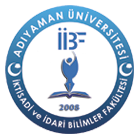Department of Economics
About Us
The Department of Economics, established in 2008 within the Faculty of Economics and Administrative Sciences at Adıyaman University, began accepting students in the 2009-2010 academic year. The department currently has 2 Professors, 3 Associate Professors, 2 Assistant Professors, and 2 Research Assistants. With approximately 250 students enrolled, the department continues its educational activities with a strong and qualified academic staff.
The Department of Economics aims to continuously improve the quality of education and teaching. In addition to the undergraduate program, a graduate program is also offered within the Department of Economics. Although the second teaching program was closed in the 2018–2019 academic year, the regular teaching and graduate programs continue to accept students.
The primary objective of the Economics Department's Bachelor's Program is to produce qualified graduates who can analyze economic events and phenomena, generate solutions, possess a solid theoretical foundation, and support this foundation with applied studies. The program aims to equip students with the knowledge, skills, and competencies required for employment in both the public and private sectors. Within this scope, the undergraduate curriculum includes fundamental and specialized courses such as Microeconomics, Macroeconomics, International Economics, Statistics, Econometrics, History of Economic Thought, Current Economic Issues, Social Psychology, Capital Markets, Investment Project Analysis, and Decision Methods.
Mission & Vision
Vision
To transform the Department of Economics of Adıyaman University into an institution that is distinguished by the quality of its scientific activities and the quality of the education programs it conducts.
Mission
To train qualified economists required by the society and to lead scientific activities that will expand the research horizons of economics in our country.
